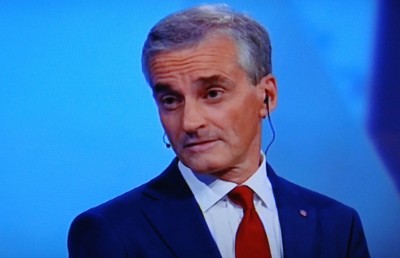While many Norwegian politicians still hesitate to use the word “crisis” when describing the consequences of much lower oil prices for Norway’s economy, rising unemployment and prospects for the job market are big issues in the current election campaign. All the parties have their own action plans to offset the downturn and create new jobs, but the Labour Party has been losing voter support at a time when it was expected to gain.

A new public opinion poll conducted by research firm Respons for newspaper Aftenposten shows Labour falling more than five points to claim just 29.8 percent of the vote. Labour remains largest, ahead of the Conservatives with 25.3 percent of the vote, but it’s the first time in a long time that Labour has dipped below the 30-percent mark.
Commentators were calling it a “shocking poll” just three weeks before municipal elections on September 14. The only comfort for Labour may be that the other parties didn’t seem to gain much on Labour’s loss with the exception of the Progress Party, which rose by a percentage point of 1.8 to 11.1 percent of the vote. All the other much smaller parties registered tiny gains, indicating that many voters are undecided.
Labour leader Jonas Gahr Støre, who took over the post last year after long-time leader Jens Stoltenberg accepted a job as secretary general of NATO, has also caught criticism recently over his less-than-charismatic performance in pre-election debates, for appearing to waffle on some issues and being vague on others. “I can always see that I can make adjustments in the next presentation,” he told news bureau NTB this week, “but I still have to be me.”
Støre and the party are clearly making some adjustments in how Labour thinks rising unemployment should be tackled. Last spring, noted Aftenposten, Støre was proposing that the state government needed to provide more funding for welfare and local governments that in turn could generate more jobs. He has questioned plans underway to merge local governments to reduce bureaucracy and create more economy of scale (kommunereform), and he hardly mentioned how the private sector could contribute or get some relief. He was promptly chided by business newspaper Dagens Næringsliv (DN), which editorialized that economic diversification away from reliance on the oil industry (a process called omstilling in Norwegian) wouldn’t be accomplished by using public funds to create new jobs. Rather, it’s about moving people over to other, well-paying jobs in the private sector.”
On Thursday, Støre and Labour’s financial policy spokesperson Marianne Martinsen, seemed to have changed their tune, proposing new measures “against rising unemployment and for green diversification.” The measures still involve spending NOK 2.5 billion in state funds on such things as more teaching jobs but also recognize that “diversification will occur within companies,” with more state funding earmarked for research and technological development. Støre also indicated that unemployment (estimated to have risen to 122,000 people currently out of work) would be lower if he was prime minister.
That was disuputed by Prime Minister Erna Solberg’s conservative government coalition, which insists it’s best-suited to “securely bring Norway through the diversification process.” It noted that Norway still has Europe’s lowest unemployment rate and stressed that its revised state budget included measures to create new jobs, provide some tax relief for businesses and generally make it easier for business to invest in new areas. It stressed the moderate pay raises agreed nationwide and efforts to boost competitiveness. That all may provide small comfort to the hundreds more people faced with losing their jobs this week, though, and who are undecided about how they’ll vote next month.
newsinenglish.no/Nina Berglund

